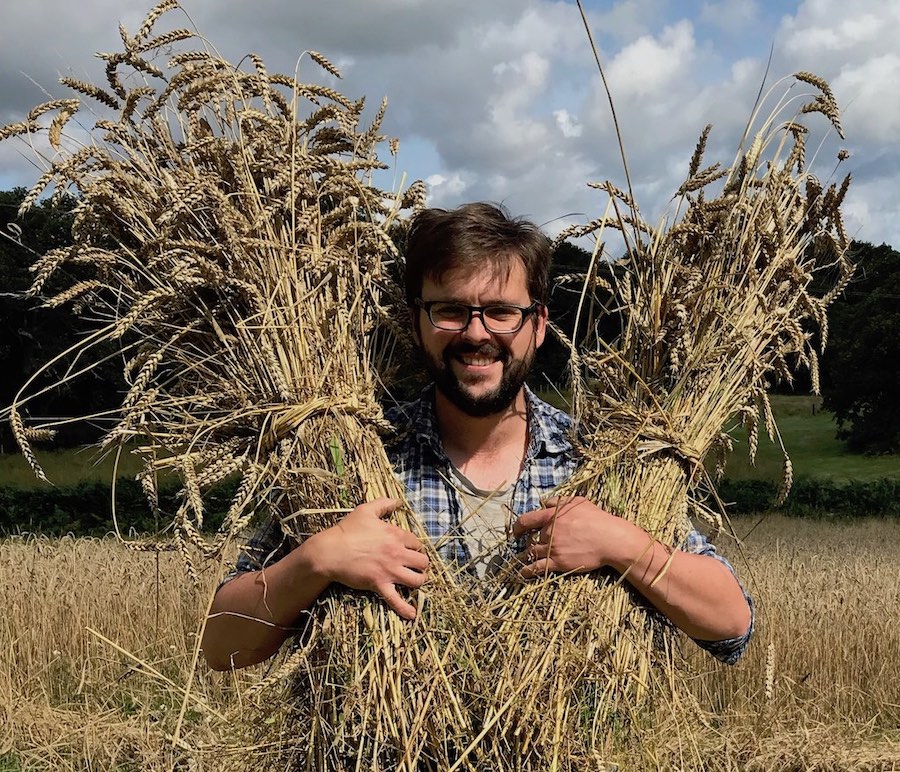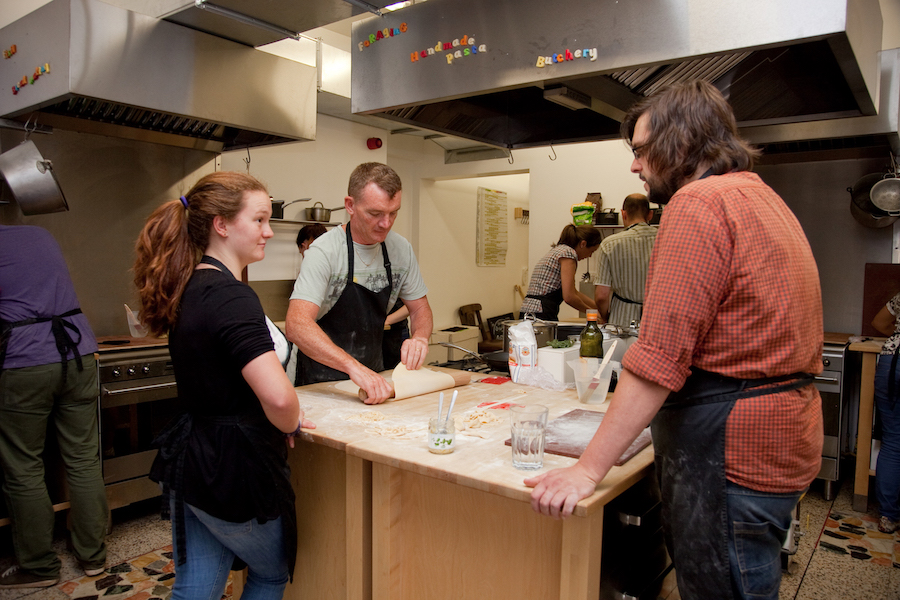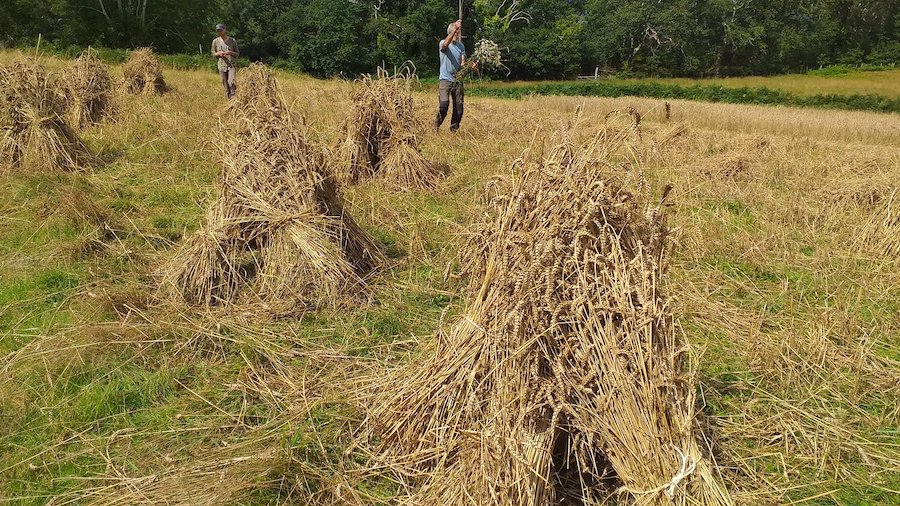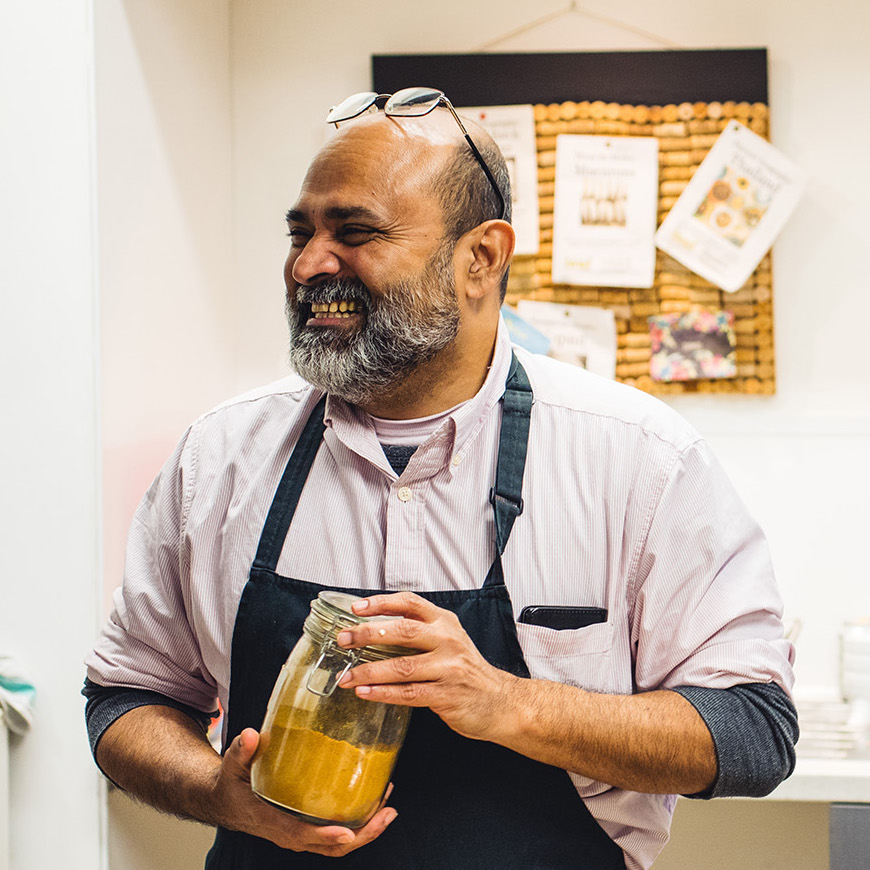
Following on from our interview with Loaf founder Tom Baker last week, we thought we’d get a bit more personal with all our cookery school teachers. Next up is Haseen Muthalali of Pop-up Dosa. Haseen has been running Dosa and Thaali classes with us pretty much since we opened on the high street a decade ago, bringing the cuisine of his native state of Kerala in southern India to the tables of Birmingham.
Can you tell us a bit about growing up in Kerala and learning these recipes?
Growing up in Kerala I was always fascinated with food and our various complex cooking methods. As a child, I always liked to hang around the kitchen and was just fascinated to watch the food be prepared. The different smells and fragrances of all the spices and how they fused together always attracted my interest.
Kerala literally means ‘land of coconuts’ and is on the southwestern coastal tip of India. So seafood, coconut, but also all the spices that make our cuisine really unique can be found here. Also, we have Muslim, Hindu and Christian communities each with their own special dishes. It’s such a unique part of the world, and the diversity and availability of spices and ingredients are reflected in the food.
What is Pop-up Dosa? How did that start?
I started Pop-up Dosa in Kings Heath, Birmingham as a supper club about 10 years ago. I made home-style dosa — a thin pancake made of rice and dahl — masala potatoes and chutneys. It’s a classic Kerala dish we eat at almost any time of day. It was a great success and we soon were doing streetfood events and kitchen takeovers at local cafes.
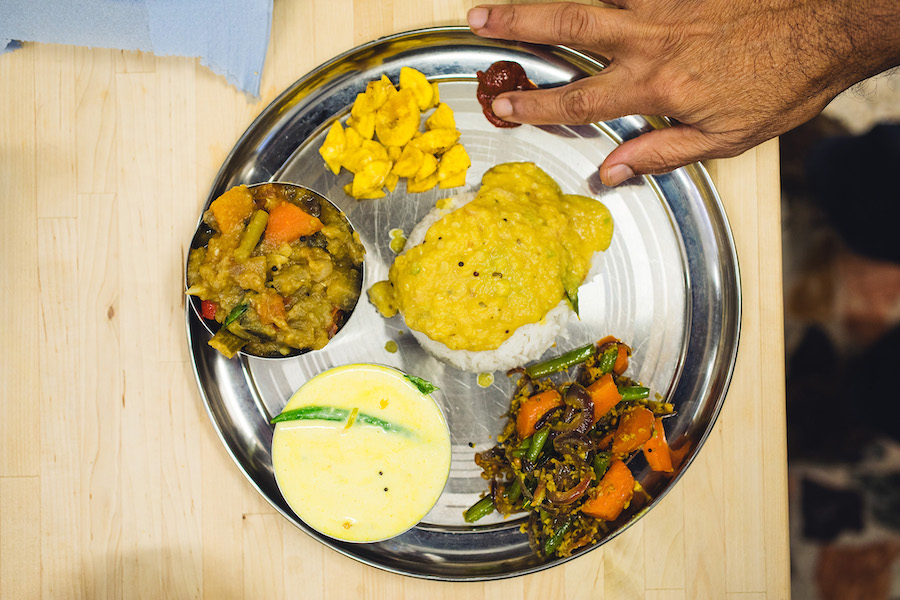
How did you first get involved with Loaf?
Tom Baker came to one of the early supper clubs and we discussed the idea of a class at Loaf. I would not be surprised if I am the only Kerala-born and raised person in the UK to teach Kerala cuisine in a cookery school.
What’s the most rewarding thing for you about teaching?
I love sharing Kerala cuisine with people, both those who have never had it before and those who want to make the foods they ate on a trip there. Also, the food is naturally healthy, with lots of veg and lentils. It gives me extreme satisfaction and joy to see participants enjoying nourishing food with no compromise on taste and authenticity. I make sure participants learn in a very hands-on way, ensuring they remember how to make the recipes at home easily.
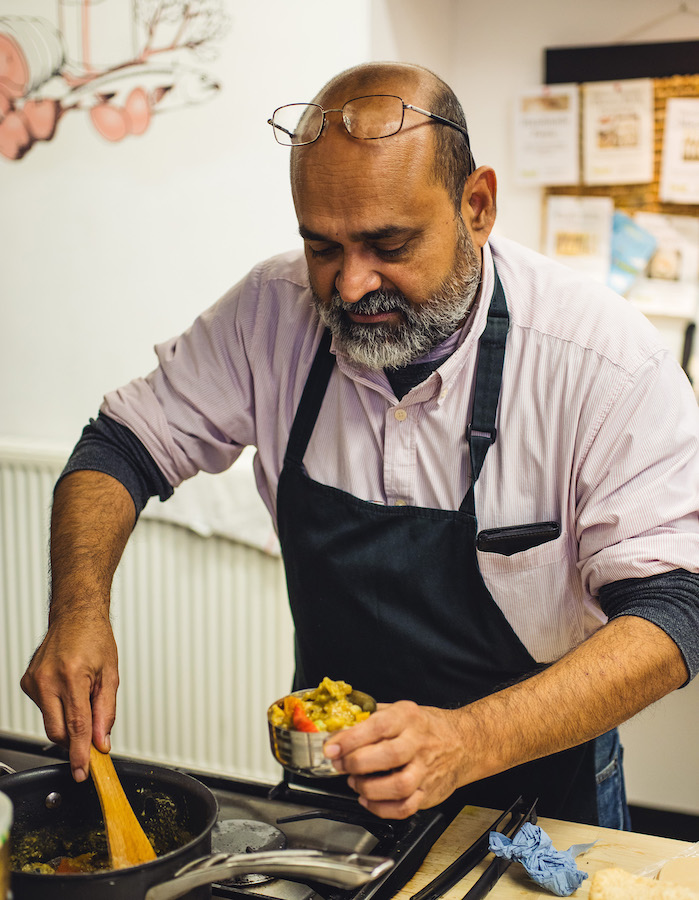
Can you tell us a bit more about a particular dish?
I have a hard time choosing just one dish! But I decided to teach how to make Dosa because it’s so popular and well-known. I teach how to make it with the spiced potato and vegetable stuffing (called masala), and also with sambaar, which is a soup-like vegetable curry that you dip the dosa into. Then we make the different chutneys to accompany it.
Dosa classes were selling out and seeing the enthusiasm and interest I decided to add a Thaali course involving multiple Kerala vegetable dishes. And we are soon starting a course making a coconut milk crepe called Appom with Kerala vegetables and seafood. But more about that later!
Thanks Haseen! We run each Kerala cookery class once a month throughout the year. You can book the current dates on our website or sign up to be alerted when new dates are released.
Photos by Jack Spicer Adams
